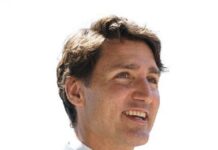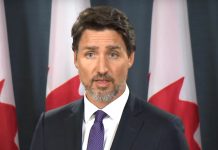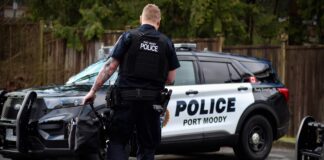CANADA on Wednesday strongly condemned the violent attacks against those protesting peacefully in Sri Lanka, and called on authorities to investigate and hold those instigating or perpetrating violence to account.
Global Affairs Canada said in a statement: ”We urge those inciting violence to cease immediately.
“It is crucial that the fundamental democratic freedoms of Sri Lankans, such as the right to peacefully exercise freedom of expression, are respected and upheld. Canada urges the Government of Sri Lanka to engage with the peoples of the island to find solutions that will address the country’s challenges.”
It added: “Canada also acknowledges the significant challenges faced by Sri Lankans as a result of the economic crisis, and is providing support to help address the shortfall in medicines and medical supplies, and increase food security.
“Canada will continue to monitor the rapidly changing situation in Sri Lanka.”
IANS REPORTS FROM COLOMBO:
To end the ongoing political crisis, Sri Lanka President Gotabaya Rajapaksa on Wednesday announced that a new government with a new Prime Minister, who can command the majority in the Parliament, would be appointed this week.
Addressing the nation, President Rajapaksa also agreed to bring constitutional changes in line with the 19th Amendment, which was introduced by the last government and seeks that the Parliament be given more powers while curtailing executive (presidential) powers.
He also assured that as demanded by various sections of the society, he would make ways to abolish the Presidential system.
Meanwhile, former PM Ranil Wickremesinghe has met the President on Wednesday and there was speculation that he was to be appointed as the new PM.
In his speech, President Rajapaksa strongly condemned Monday’s violence, which nine people, including an MP, dead, 300 injured and over 100 houses and offices of politicians torched. He assured that severe punishment would be imposed on those responsible for the violence and he is working with the other parties to ensure security of all people and political stability.
As it goes through its worst-ever economic crisis, Sri Lanka on Monday saw violent attacks carried out by pro-government goons on peaceful protestors who had been demanding the President and PM Mahinda Rajapksa to resign.
Subsequently, nearly 2,000 supporters of Mahinda Rajapaksa who gathered at his official resident, Temple Trees, insisted that he not to step down and later armed with poles and iron bars, marched towards two protest sites near his residence and attacked the protestors.
Condemning the attacks, people around the country took onto the streets and counter- attacked the pro-government group and later, the buses, and other vehicles they used to come to Colombo were damaged and burnt.
Arson attacks were carried out on more than 100 buildings including the houses of Mahinda Rajapaksa and his younger brother and former Finance Minister Basil Rajapaksa and elder brother and former minister Chamal Rajapaksa, other ruling party ministers, MPs and local politicians.
In wake of the violence, PM Mahinda Rajapaksa resigned and later took refuge at a naval base on the Eastern coast.
Amidst the public anger, the ruling party politicians have gone into hiding and the Speaker on Wednesday urged the Inspector General of Police to ensure security of MPs.
Following Monday’s violence, an island-wide curfew was imposed till Thursday morning and it as later announced the curfew would resume from 2 p.m. on the same day.
On Tuesday, the military was called in and orders were given to shoot all those looting and carrying out arson attacks. On Wednesday, armoured vehicles were seen all around Colombo with a heavy military presence and political parties had complained that the government was planning a military dictatorship.
The US expressed concern over the deployment of the military and urged the
government to work quickly to ensure public safety and implement solutions to achieve long-term economic and political stability in the country.
Meanwhile, the Indian High Commission in Colombo strongly denied certain media reports that some politicians with their families have fled to India for safety.
India also denied speculative media reports that it was to send troops to Sri Lanka and a spokesperson of its Ministry of External Affairs had stated that India was fully supportive of Sri Lanka’s democracy, stability, and economic recovery.













